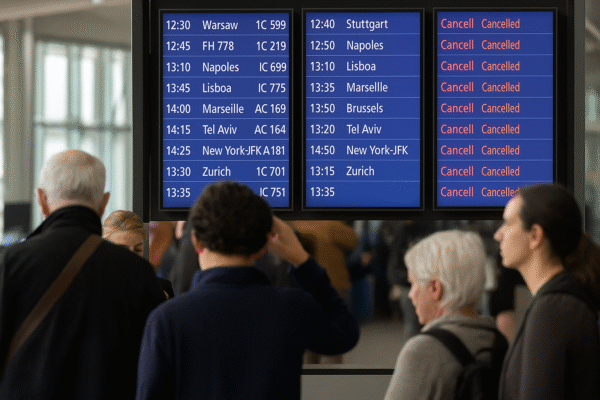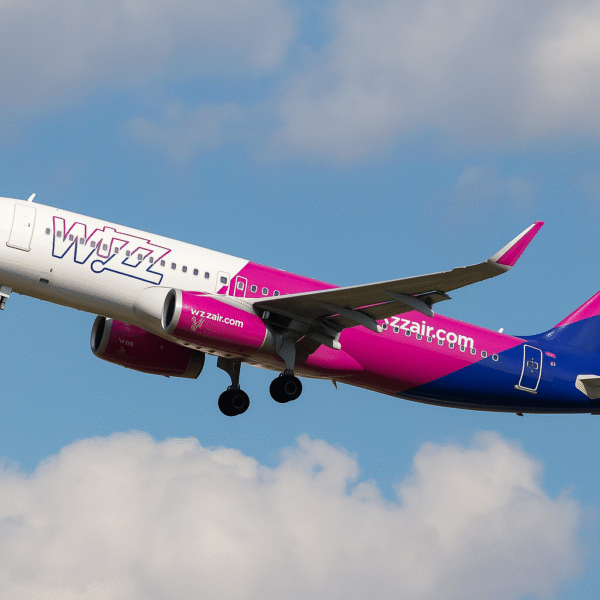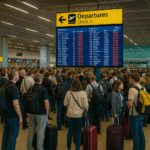FBI Cyber Alert Warns Travelers as Scattered Spider Hackers Target Airline Systems
As global air travel rebounds in 2025, so do the cybersecurity threats lurking behind digital check-ins and online booking portals. The Federal Bureau of Investigation (FBI) has issued a nationwide alert concerning a sophisticated hacker group, Scattered Spider, which has recently targeted airline IT infrastructure and third-party systems tied to aviation networks. This wave of cyberattacks not only poses operational risks but also threatens the security of millions of passengers’ personal information.
Who Are the Scattered Spider Hackers?
According to the FBI, the Scattered Spider group is a highly coordinated cybercriminal organization utilizing advanced social engineering tactics to infiltrate corporate networks. These attackers pose as legitimate employees or external contractors to deceive help desk agents and obtain privileged access to sensitive airline IT systems.
The method bypasses traditional security mechanisms, including multi-factor authentication (MFA), allowing them to access backend systems that contain personal booking data, frequent flyer details, and potentially even payment information. In some cases, ransomware may be deployed to extort large sums from targeted companies, placing both business continuity and customer trust in jeopardy.
Airline Targets: WestJet and Hawaiian Airlines Breached
Two major airlines have already reported cybersecurity incidents believed to be linked to this group.
In June 2025, Calgary-based WestJet confirmed an intrusion that disrupted parts of its internal IT infrastructure and limited functionality within its mobile app. While flight schedules remained unaffected, the company acknowledged that passenger data might have been exposed. Investigations with cybersecurity partners and law enforcement are still ongoing.
Meanwhile, Hawaiian Airlines, operating out of Honolulu, also disclosed a security breach that impacted its backend IT systems. Although flight operations continued without delays, the airline refrained from providing details on whether customer data was accessed. The cyber incident, however, prompted increased monitoring and a review of system vulnerabilities.
What This Means for Travelers
While the impact on actual flight operations has so far been minimal, the real concern lies in how cybercriminals might misuse sensitive traveler data. If you’ve recently flown with or booked a flight through affected airlines, you could be at risk—even if the airline hasn’t publicly confirmed a breach involving your information.
Compromised data could include:
- Full names and contact details
- Passport numbers and travel itineraries
- Credit card information
- Loyalty program credentials
Cybercriminals could exploit this data for identity theft, financial fraud, or phishing scams posing as official airline communications.
How Travelers Can Protect Their Personal Information
Given the evolving nature of cyber threats, especially in the airline industry, travelers are urged to adopt proactive data protection strategies:
1. Monitor All Travel and Bank Accounts
Regularly review your airline loyalty profiles, booking history, and bank accounts for any unusual activity. Report anomalies immediately.
2. Use Strong, Unique Passwords
Avoid reusing passwords across travel platforms. Use a password manager to generate and store secure, unique credentials.
3. Enable Two-Factor Authentication (2FA)
If your airline or booking site offers it, activate two-factor or multi-factor authentication. This adds another hurdle for attackers.
4. Avoid Public Wi-Fi During Transactions
Don’t make travel bookings or access sensitive accounts while connected to unsecured networks in airports or hotels.
5. Stay Alert for Phishing Attempts
Beware of suspicious emails or text messages claiming to be from airlines. Verify communications directly via official websites or customer support numbers.
6. Use Travel Notification Services
Sign up for cybersecurity alerts via the U.S. Department of Homeland Security or Canada’s Public Safety Canada website to stay informed about active threats.
Broader Implications for the Airline Industry
The rise of groups like Scattered Spider signals a turning point in how the airline industry must approach digital defense. Airlines now operate in a data-rich environment where every mobile boarding pass and automated chatbot opens potential access points for cyber intrusion.
Security experts recommend that airlines strengthen their backend systems by:
- Increasing staff training to detect social engineering scams
- Conducting regular vulnerability assessments and penetration tests
- Enhancing third-party vendor security audits
- Investing in AI-based intrusion detection systems
Failing to act could result in reputational loss, costly legal proceedings, and widespread passenger distrust.
Transparency Is Key
In the face of such threats, experts urge airlines to maintain transparency with the public. Informing passengers when a breach has occurred—and what information may have been compromised—is crucial for building long-term trust and compliance with privacy regulations.
Travelers deserve clarity, even if operations are not visibly affected. Early communication enables users to take timely action to secure their data.
Final Thought: Cyber Safety Is the New Travel Essential
As airline tech continues to evolve—from biometric boarding gates to in-flight Wi-Fi and mobile apps—so too must traveler awareness. The FBI’s latest warning is a reminder that cybersecurity is not just a corporate concern but a personal one.
Staying cyber-safe is now as essential as packing a passport. With caution, vigilance, and informed action, travelers can reduce their risk and continue to explore the world safely—even in the digital skies.
For more travel news like this, keep reading Global Travel Wire


















